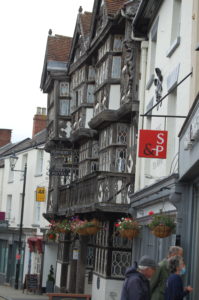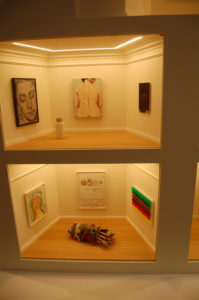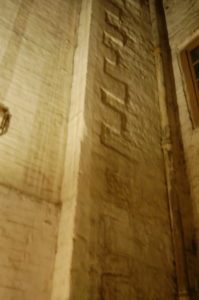Schadenfreude isn’t quite the word, because we wouldn’t wish ill on the poor servants who laboured in these kitchens, but no visitor is likely to want to repeat their experience. Heritage days may all be very well but at the end we return to our own fairly comfortable homes. They had either to walk back to the family hovel or climb stairs to the servants’ rooms.
It is easy to imagine the heat, crowd and rush to prepare meals before a footman covered them and ran through a tunnel under the courtyard to the house. The family had no wish to see how their meals arrived.
Equally, it is easy to admire the beauty of copper pans and their arrangement by size along scrubbed shelves, without stopping to think who kept them shining and lifted them – they are heavy – into position after cooking with them.
Not that the pans and other utensils are all: preparation rooms for pastry, vegetables and meat are fascinating to examine. Particularly interesting is the pastry kitchen with a mould for every delicacy and a small oven for fine baking. ‘Bake 0ff’ was never like that.
Appropriately, to her mind probably as well as to historical context, a celebration of the work of Elizabeth Ilive, mistress and later wife of the third Lord Egrement, is displayed in a room beside the kitchen corridor. One of her great achievements was to develop from experiment strong strains of potatoes during wartime – the first dig for victory perhaps – when wheat imports were impossible and harvests were poor. (Constable painted ‘The Hay Wain’ during one of many wet summers at that time.) The exhibition is hands-on, encouraging children and adults to use the kind of instruments she used. It is an example of how the National Trust is becoming more approachable.
Although it will be a bit crowded for wheelchair users, they should be able to explore all rooms, and perhaps experience some of the pressures the kitchen staff endured. Some of the kitchen staff are belatedly recognised in photographs with biographical details. Their wages, compared with the almost unimaginable income of the Percy and later Wyndham families, offers another insight into times we can only hope – pre-Brexit – are firmly past.










